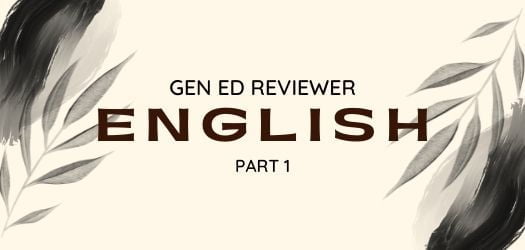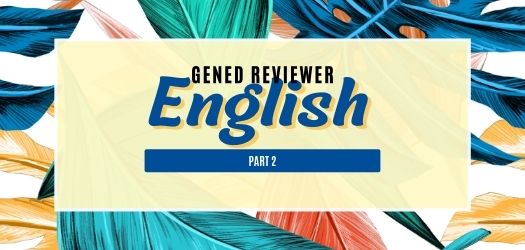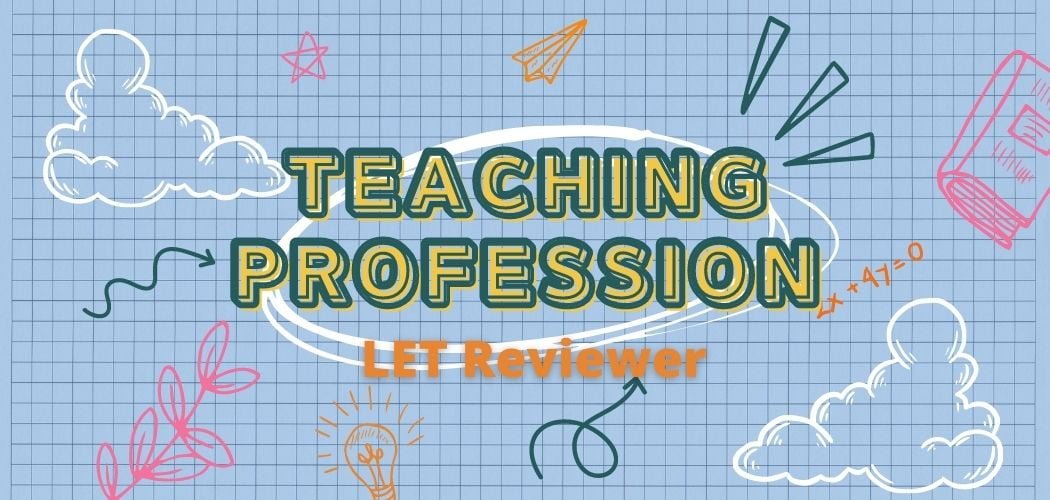Get a sense of the LEPT/LET testing question sets and formats with our practice tests and exams. This will allow you to view which areas your strengths lie and areas of improvement to pass the exam. Get a practice test with 50 questions for the LET Professional Education test.
Aspiring teachers in the Philippines seeking to pass the PRC board exam have access to our test resources. We used it ourselves. Check out our FREE LET reviewer for Professional Education (Prof Ed).
You can either take the full mock quiz (150 items) using Google form (ads free) so you can take the practice test or download the PDF file (well-formatted).
Recommended reading:
- 13 Tips From Repeaters: How to Pass the LET the First Time
- 5 Researched-Based Techniques to Pass the LET
- How to Remember Better: A Study Tip
Prof Ed Sample Questions
BONUS: A full mock exam (150 items) using Google Quiz is also available to get immediate feedback or download the PDF file (both links are available at the end of this section).
Question 1. Among the ways school officials and teachers can actively participate in the community, which may not be appropriate due to prevailing religious sentiments?
A. Providing literacy assistance to out-of-school children and youth
B. Conducting household campaigns for healthful practices
C. Encouraging cooperative thrift practices
D. Advocating for contraceptive use in family planning✅
Question 2. If a teacher aims to cultivate self-responsibility and accountability among his students, he should focus on which educational philosophy?
A. Utilitarianism
B. Existentialism✅
C. Essentialism
D. Constructivism
Question 3. If higher education focuses on outcomes, then DepEd is primarily concerned with:
A. Results of performance tests
B. Results related to subject content
C. Standards and competencies✅
D. Results of achievement tests
Question 4. If you need to verify whether your students have achieved the expected outcomes through their outputs, you would be interested in reviewing an:
A. Assessment portfolio✅
B. Development portfolio
C. Showcase portfolio
D. Evaluation portfolio
Question 5. The standardized test designed to evaluate performance in subjects that have been completed at various grade levels is known as a:
A. Remedial test
B. Achievement test✅
C. Intelligence test
D. Aptitude test
Question 6. Based on the “Learning to do” pillar, what empowers a learner to actively contribute to a peaceful and just society?
A. Knowledge
B. Insight✅
C. Skills
D. Values
Question 7. If you decide to shift your planned lesson to focus on a topic your students are more interested in, your decision is guided by:
A. Rationalism
B. Existentialism✅
C. Empiricism
D. Progressivism
Question 8. Before a learner can fully embrace the concept of “learning to live and work together,” they must first:
A. Find peace within oneself✅
B. Love their fellow human beings
C. Achieve an altruistic mindset
D. Reach self-actualization
Question 9. The fostering of sound judgment, dedication to truth, and bolstering of society’s moral foundation are all part of this primary objective of Philippine education:
A. Self-actualization
B. Ethical character✅
C. Autonomy
D. Enculturation
Question 10. In the scenario where a powerful European country provides weapons to Afghan rebels engaged in conflict in the Middle East, the most applicable principle based on moral discernment would be:
A. The principle of double effect
B. The principle of material cooperation
C. The principle of the lesser evil
D. The principle of formal cooperation✅
Question 11. “Learning to learn” is best seen in this/these skill/s.
A. to ask and gather data
B. to process and select information
C. to listen and observe✅
D. to read with understanding
Question 12. If people live together in peace and harmony by understanding one’s traditions and values, what word will describe the situation?
A. interdependence
B. accentuated risk
C. pluralism and diversity✅
D. contemporaries
Question 13. Of all these programs, this is one in which any member of the community can help.
A. Mother Tongue-Based Multilingual Education Program
B. Education Service Contracting
C. E- Impact
D. Brigada-Eskwela✅
Question 14. “An ounce of experience is better than a ton of theory” was one of John Dewey’s main contentions. This statement underscores the…
A. the need for theory
B. the primacy of experience✅
C. the need for experience
D. the primacy of theory
Question 15. Several components make up a morally mature person. Which shows that a teacher applies more principles (e.g., the Golden Rule) when making moral judgments?
A. encourages others to share their ideas
B. develops self-esteem
C. reflects on moral choices✅
D. takes into account the opinions of others
Question 16. What best describes the “pwede na” mentality vs excellence in service/work?
A. arduous preparation
B. committed work
C. resignation to mediocrity✅
D. striving to be the best
Question 17. What school of thought is behind the student-centered approach in teaching which emphasizes discovery learning among students?
A. behaviorism
B. progressivism✅
C. essentialism
D. existentialism
Question 18. What is the appropriate response for millennials who are more exposed to virtual reality (digital toys and tools) instead of actual reality?
A. no mobile phones in school
B. limits the use of Facebook and texting
C. PTA conference with parents
D. Align learning in the context of reality✅
Question 19. With the influx of technology in the 21 first century, how can students be best re-educated on the ethical use of social media, such as Facebook and mobile texting?
A. integrate social media competencies into the curriculum✅
B. students monitoring of peers
C. punishment for violators
D. seminar on social media
Question 20. What is considered the best feature of Tyler’s Rationale?
A. Planning phase
B. Evaluating the experience
C. Identifying the purpose✅
D. Organizing the experiences
Question 21. In an outcome-based approach to instructions, how can competencies be best demonstrated?
A. varied outcome evidence
B. congruence between objectives✅
C. continuing monitoring and evaluation
D. high achievement test marks and output
Question 22. Teacher Lea is an excellent recordist of knowledge, concepts, subject matter, and content of the curriculum. As a curricularist, she is a _____.
A. evaluator
B. implementer
C. writer✅
D. planner
Question 23. Under the K to 12 Curriculum, what covers the spiral approach in the teaching of Mathematics?
A. teach Algebra, Geometry, and Trigonometry only to higher grades
B. progressively teach Math concepts from Grade 1 and continued to Grade 10✅
C. teach Algebra, Geometry, and Trigonometry in Grades 7, 8, and 10 respectively
D. Give autonomy to schools in the choice of Math subjects
Question 24. Arrange the steps in strategic instructional planning in chronological order:
I. check materials
II. decide expected outcomes
III. establish content
IV. outline presentation lesson
V. implement instruction
A. III, IV, II, I, and V
B. III, II, IV, I, and V✅
C. IV, I, II, III, and V
D. II, I, III, IV, and V
Question 25. Teacher Maria made a list of learning activities for her lesson plan, but she did not include _____ because this is a common activity in daily lessons.
A. presentation✅
B. summative exam
C. project
D. buzz session
Question 26. What mistake is committed by a teacher who lacks clear direction and sequences of activities by going from one activity to another?
A. openness to new ideas
B. set standards and rules
C. fixed point of view
D. conformance with authority✅
Question 27. Which among the activities below is NOT an element for effective direct instruction?
A. ample review and explanation✅
B. asking a question and checking for understanding
C. proceed in quick and double steps
D. provide systematic feedback and correction
Question 28. This is the primary goal in displaying statistical data through graphs of differing heights in a Histogram.
A. Data flow
B. Frequency distribution
C. Quantitative value✅
D. Symbolize figure
Question 29. Which among the applications below is rooted in B.F. Skinner’s Theory of Operant Conditioning?
A. Computer-assisted instruction
B. Project method✅
C. Mastery learning
D. Process flow
Question 30. What learning area utilizes the demonstration method as its most suitable, effective, and useful vehicle for learning?
A. Technical-vocational✅
B. Social Studies
C. General education
D. Values education
Question 31. Among newspaper contents, what can Teacher D utilize to teach critical reading skills to his Grade 6 students?
A. Feature content✅
B. News content
C. Editorial content
D. Entertainment content
Question 32. In her science class, how can Teacher May show the plant’s response to sunlight in an inductive manner?
A. Show different kinds of plants and their response to sunlight
B. State the cause and effect of the plant’s exposure to sunlight
C. Explain the plant’s response to sunlight✅
D. Explain the chemical reaction of the plant to sunlight
Question 33. Which among the situations demonstrates an integration of the teacher’s technological, pedagogical, and content knowledge in preparing a Math lesson for Grade 4 students?
A. makes students find apps on the internet and share them with classmates.✅
B. makes students watch videos downloaded from YouTube and ask them to summarize the video.
C. evaluates Math apps on multiplication, matches them with their learner’s skill level demonstrates the use of apps, allows students to explore, and asks students to summarize the lesson.
D. checks math standards of Grade 4 as a basis for answering multiplications exercises on the board.
Question 34. In classroom management, this is the immediate and effective way to address three misbehaving students.
A. Assign them a separate seat
B. Detain three after class
C. Stop classes till the three-stop misbehaving✅
D. Send them to the guidance room
Question 35. What questioning technique is used by Teacher A when he asked the learners a series of questions that serves to explore, look into, and inquire?
A. repeat✅
B. rephrase
C. redirect
D. probe
Question 36. Which among the following is NOT a responsibility of the Learning Resource / Audiovisual / Educational Technology Centers of a school?
A. Make available technology equipment for use of students and teachers.
B. Work with teachers in producing instructional materials.
C. Conduct training for teachers on the use of technology tools.
D. Accomplish students’ technology projects for them.✅
Question 37. As a classroom manager, Teacher A required each of his students to stand and give their seatwork individually to him before the bell rings for dismissal. What component of classroom management did he establish?
A. routine
B. code
C. norm
D. rule✅
Question 38. Among the activities below, which activity demonstrates collaborative learning?
A. group project concepts and application✅
B. student group takes drills
C. student group takes a field trip
D. teacher tutorial on students’ groups
Question 39. A bulletin board display has many colors and arrangement that catches and hold interest. What criteria is being exemplified in this situation?
A. balance✅
B. interactivity
C. utility
D. attractiveness
Question 40. Teacher Rina does not have drills out of context. Instead, she gives real-world Math problems for the learners to drill on. This act of Teacher Ivy is rooted in which principle of learning?
A. Effective learning begins with the setting of expectations and learning of outcomes
B. Learning is the discovery of personal meaning and relevant ideas
C. Learning is an active process
D. Learning is a cooperative and collaborative process✅
Question 41. This learning episode includes documentation that is complete, clear, and well-organized.
A. Assignment submitted before the deadline
B. Portfolio✅
C. Analysis of learning episodes
D. Reflections/insight
Question 42. Teacher C asks students to break down, critically examine and investigate a concept or problem. This demonstrates what kind of learning?
A. synthesis
B. application✅
C. evaluation
D. analysis
Question 43. To achieve meaningful teaching and process, it is best to link and relate the lesson to the life of the student by integrating a relevant value in the lesson. Which among the following agrees with this principle?
A. Share lesson objectives/outcomes with students.
B. Write SMART lesson objectives
C. Lesson objectives/outcomes integrated with 2 or 3 domains-cognitive, skill, and effective learning.
D. Begin with the goal/objective in mind✅
Question 44. Teacher Jenny adheres to the idea that her students do not need to know the learning outcomes of her lessons. She proceeds to give activities without letting them know what they were supposed to learn for the day. What principle of learning does Teacher Jenny violate?
A. Learning is the discovery of the personal meaning of ideas.
B. Learning is an active process
C. Learning is a cooperative and collaborative process✅
D. Effective learning begins with setting clear expectations and learning outcomes
Question 45. Based on DepEd’s present grading system, which assessment is/are used to grade students?
I. Formative assessment
II. Summative assessment
III. Assessment of Learning
A. I only
B. I and II
C. I and III
D. I, II, and III✅
Question 46. When computing for the final grade in a learning area, K to 12 utilizes:
A. Cumulative
B. Averaging
C. Norm-referenced grading
D. Zero-based grading✅
Question 47. When comparing the variability of two sets of scores, which is best?
A. range
B. variance✅
C. standard deviation
D. coefficient of variation
Question 48. Which of the following is correct about the Median?
A. It is a measure of variability
B. It is the most stable measure of central tendency
C. It is 2-second quartile
D. It is significantly affected by extreme scores✅
Question 49. If you are to determine if you realized your intended learning outcomes, which of the following portfolios would you require?
A. evaluation portfolio
B. development portfolio
C. showcase portfolio✅
D. assessment portfolio
Question 50. When the distribution is skewed to the right, the test is said to be:
A. very difficult✅
B. very easy
C. average/moderately difficult
D. not too easy nor difficult
Your turn
Take the practice exam with 150 multiple-choice items or download the PDF with the answer key.
Other Prof Ed Reviewers
| Prof Ed Reviewer | No. of Items |
|---|---|
| Prof Ed LET Reviewer: Part 2 | 50 items |
| Prof Ed LET Reviewer: Part 3 | 50 items |
| Child and Adolescent Development | 50 items |
| Facilitating Learning | 50 items |
| Principles of Teaching | 50 items |
| Curriculum Development | 50 items |
| Teaching Profession | 50 items |
| Educational Technology | 50 items |
| Social Dimensions | 50 items |
| Assessment of Learning | 50 items |
Professional Education topics
The test is approximately 150 multiple-choice questions and must be completed in 3 hours.
The Professional Education portion of LEPT/LET includes the following core topics:
- Assessment of Student Learning
- Child and Adolescent Development
- Curriculum Development
- Developmental Reading
- Educational Technology
- Facilitating Learning
- Field Study
- Practice Teaching
- Principles of Teaching
- Social Dimensions of Education
- Teaching Profession
What test takers wish they’d known
- Watch for questions that include the words “not” or “except”, which indicate that you need to choose an answer choice that does not apply.
- Keep an eye on the time and make sure you are able to complete the test in the 3-hour time frame.
- It is better to guess a question you don’t know the answer to than to leave it unanswered.



